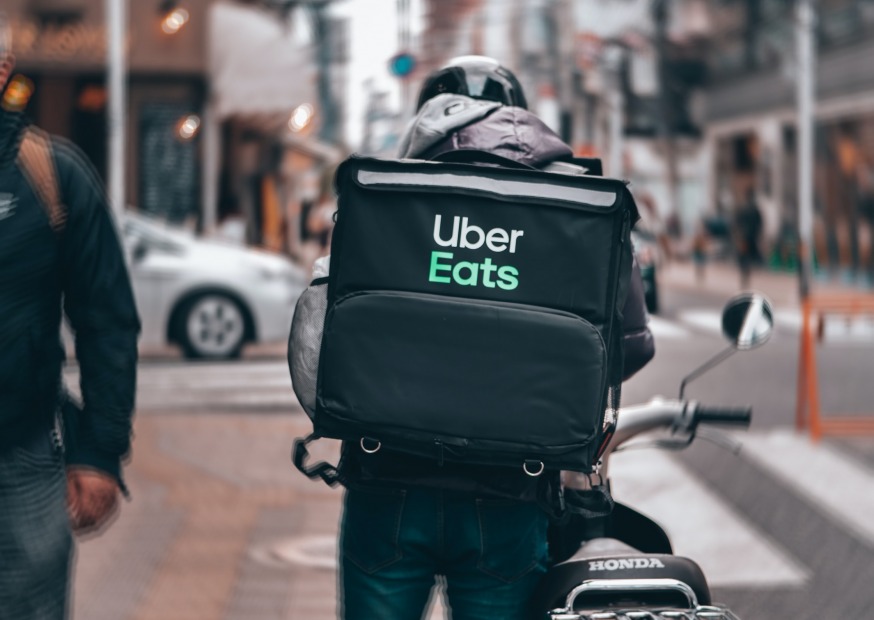
Uber Eats Delivery (unSplash)
Aug. 4, 2021 By Allie Griffin
The New York City Council voted last week to extend a number of laws that put caps on third-party delivery apps in an effort to help small businesses recover from the pandemic.
The council voted Thursday to extend the laws that prohibit third-party delivery apps from charging restaurants more than 15 percent per order for delivery and more than 5 percent per order for all other fees through Feb. 17, 2022.
The current combined 20 percent cap was set to expire Aug. 17. The initial law stated that the caps would be lifted 90 days after Gov. Andrew Cuomo allowed indoor dining to reopen at full capacity statewide.
The caps largely apply to companies such as DoorDash, GrubHub and Uber Eats.
“We have the opportunity and a responsibility to protect our mom-and-pop shops and ensure they can survive,” said Council Member Francisco Moya who was a sponsor of the bill. “To allow the temporary cap to expire would completely handicap the recovery of so many businesses that are just starting to get back on their feet.”
Members voted to extend other laws to help businesses as well. The council passed legislation that prohibits third-party delivery platforms from charging restaurants for telephone orders that don’t result in a sale through Feb. 17, 2022.
“For far too long, there’s been an imbalance of power between these third-party food delivery services and restaurants,” Moya said. “Small businesses should not be pressured into accepting these fees in order to remain viable and competitive.”
The council also passed several other bills pertaining to restaurants and delivery app companies.
Members passed a bill that prohibits third-party delivery platforms from listing restaurants on their apps or websites and making deliveries from such restaurants without a written agreement granting permission to do so. The bill also bans third-party platforms from charging a restaurant for damage that occurs after food or beverages leave the restaurant.
The council passed another bill that requires the platforms to list a restaurant’s direct phone number. If the platform includes an alternate number as well, it must provide a description of any fees associated with its use.
Members also passed a bill that requires third-party delivery apps to share customer information related to delivery orders placed on their platforms with restaurants that request the info. The information would include the customer’s name, phone number, e-mail address, delivery address and the contents of their order. Customers, however, would be able to opt out of the information sharing.
The bill would prohibit restaurants from selling or disclosing the customer information without the express consent of the customer.
The app companies, however, have taken issue with this bill—citing customer privacy concerns—and are advocating that it not be signed into law.
“We remain deeply concerned about the consequences of the City Council’s decision to force delivery platforms to turn over sensitive customer data without customer consent and without any protections for that data,” according to a DoorDash spokesperson. “New York City policymakers not only shut out the concerns of more than 5,400 New Yorkers who wrote to them opposing this bill, but they ignored the voices of civil rights, immigration, and privacy groups who warned how dangerous this bill could be.”
However, Council Member Keith Powers, who sponsored the bill, said it would help restaurants connect with their customers and assist them in their recovery.
“My bill … will support local restaurants by making it easier for them to connect with customers, while also ensuring privacy protections for all New Yorkers,” Powers said. “After a devastating year for the restaurant industry, it’s imperative that the City Council is doing everything in our power to boost their recovery.”
Each of the new bills will take effect 120 days after being signed into law. The extensions to the prior laws will take effect immediately.






